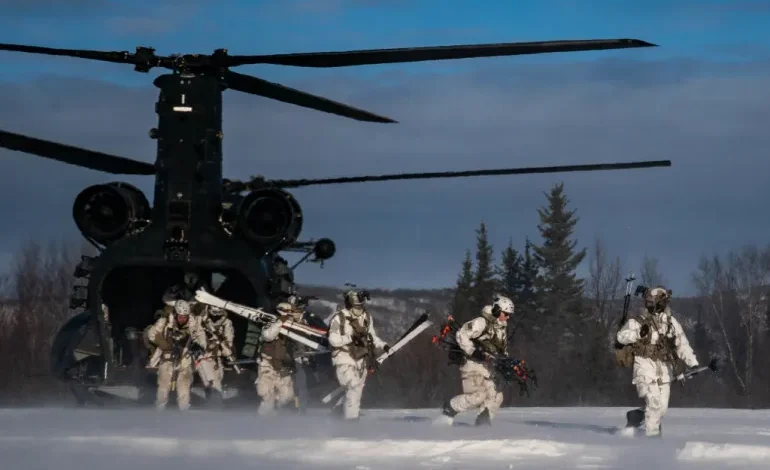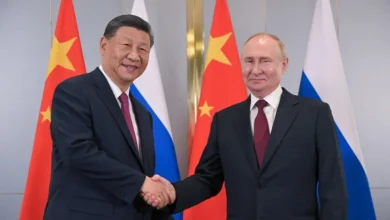US wary of China-Russia cooperation in increasingly strategic Arctic

Beijing and Moscow have hit out at claims from the United States that growing cooperation between China and Russia in the Arctic could threaten regional stability.
Responding to a strategy report from the US Department of Defense, the pair hit back on Tuesday at the criticism of their actions in the Arctic, which Washington framed as being driven by geopolitical developments. With global warming shrinking ice coverage in the Arctic, offering increased access to shipping and fossil fuels, the polar region is viewed as increasingly strategic.
“The Arctic is also a strategic area for our country. Russia takes a responsible position and contributes to ensuring that the Arctic does not become a territory of discord and a territory of tension,” Kremlin spokesman Dmitry Peskov said, according to the Reuters news agency.
“In this regard, Russian-Chinese cooperation in the Arctic zone can only contribute to an atmosphere of stability and predictability in the Arctic.”
Chinese Ministry of Foreign Affairs spokesperson Mao Ning told reporters that Beijing’s activities in Arctic affairs is “in line with the basic principles of respecting win-win cooperation and sustainable development”.
“The United States distorts China’s Arctic policy and makes thoughtless remarks on China’s normal Arctic activities, [which are] in accordance with international law,” Mao added.
Countering Russia and China
Security scholars and regional military attaches said China’s reliance on Indian Ocean shipping routes are seen as a strategic vulnerability for Beijing, particularly in any scenario involving a conflict over Taiwan, prompting it to seek alternatives.
The Pentagon report said China is looking to leverage “changing dynamics in the Arctic to pursue greater influence and access, take advantage of Arctic resources, and play a larger role in regional governance”.
The report called on the US government to invest more to upgrade sensors, communications and space-based technologies in the region to keep pace with China and Russia.
In 2022, the US announced it was naming an ambassador at large for the Arctic, a reflection of the region’s growing strategic and commercial importance as shrinking ice coverage opens up new sea lanes and vast oil and mineral resources.
This month, the US, Canada and Finland will form a consortium to build icebreaker ships intended to bolster Western shipbuilding capabilities and counter Russia and China in the increasingly strategic polar regions.
The deal, which the three NATO members aim to sign by year’s end, will pool demand from allies to scale up shipbuilding capacity, the official said, adding that it was designed to send a message to Russia and China.










